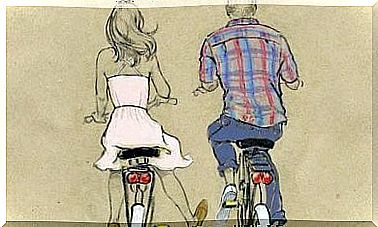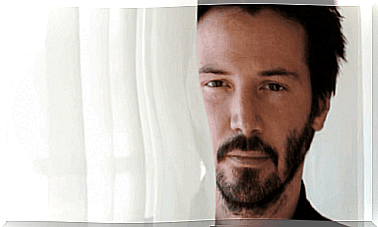It’s Never Too Late If The Time Is Right

It seems more and more accepted that time is constructed moment by moment, by accumulating experiences that rock us and push us into circumstantial currents. German physics professor and scientist Georg Lichtenberg had come to say that nothing makes us age faster than constantly thinking about what makes us old / old.
Thinking that it is too late for something is to give wings to “never” and kill opportunities and winds of change in different areas of our life. Tell yourself that it is not a question of valuing things according to the time we have left in the day, in the week or in life. It is something that must be valued depending on the moment in which we find ourselves.
On this point, we can always lament about lost time, sacrificed hobbies or even abandoned passion. All of this can generate some anxiety in us. Anxiety that leads us to ruminate on thoughts such as “I shouldn’t have given up” or “it was difficult for me”. On the other hand, the unattainable goals that we can sometimes set for ourselves can lead us to be disappointed in ourselves because of our inability to achieve those goals that are beyond our reach.

On the other hand, often the goals you set include new activities, and that’s not a bad thing. However, we can also look around us, become aware of what we are doing and what we already have, and change everything.
Work to improve that, to broaden our vision on it and deepen it. Perhaps by following this path – seemingly more modest – we will be able to learn a richer lesson than that which we could draw by pursuing objectives which are beyond our short-term possibilities, even if at the beginning they result more attractive.
Reinterpreting one of the elements that occupy our daily life can bring many things if we change the prism from which we see life.
Often, development is not that far away as you might think. In fact, simply by changing the perspective from which we look at most of the elements that occupy our daily life – relationships, behaviors, objects, etc. – we can make great discoveries.
If we change our approach and point of view, we can promote an infinite number of capacities and abilities. To illustrate this, let’s take an example: during the Christmas holidays, when you have more free time, you set a new goal, and decide to focus on an activity that until then you have automatically indulged in without thinking: the food. With this change of perspective on an activity that you were doing “without realizing it”, you realize that you can add much more to your life than a rich and varied diet.
Cooking is something which, although motivating for some, can be a nightmare for others. Usually, we reduce it to something that we use to socialize, get nutrients, and activate taste. But after that, there are other possibilities which we have not explored, and which we have been fortunate enough to put into practice and improve by deciding to give them more attention and importance.

Behind every activity, there are occult qualities which can make one express the moment. To take the example of cooking, thanks to it, we can discover several of these qualities:
- Creativity: something important in the kitchen is change; dare to imagine our dishes, cook them and taste them. This advantage is found in this discipline. Sure, sometimes it’s best to stick to a particular recipe – especially in baking – but that’s only part of the process. We can also give free rein to our imagination during training, for example.
- Discipline: the other side of the coin. Accuracy and time are important elements in many tasks, so for the best result, both elements must be controlled. Learning to measure and work by following instructions and taking ordinary steps is a discipline that will put our creativity “on a firm footing”.
- Patience: in this case, two paths are available to us. Either be patient with yourself or be patient with the discipline itself. Respecting the time for both own learning and the processes that one undertakes is an essential part of having success. In fact, the haste and the urge to get it over can easily be factors that negatively affect the end result. In addition, tell yourself that it is good for cooking, like any other leisure activity, to go at a different pace than the one you lead to your daily obligations.
- Memory: we can see it as a challenge. By trying to memorize recipes, proportions or ingredients, we train and test our short-term as well as long-term memory.
- Planning: currently, it is an essential element in our daily life. Knowing when, how and what to do at each moment will help us focus our time on the activities we are doing and not constantly change everything in our mental agenda. Thus, having a structured and flexible agenda at the same time will free up mental resources that can be used to enhance the experience itself of the activity in which one finds oneself.
- Tolerance in the face of frustration: fail. Practice, and fail again. Thinking that we do not know or that we cannot is a demon that awaits us at all times and in all circumstances. In this discipline, we fail, we start over and we can also fail again. It all depends on whether we adjust our expectations, whether we analyze our failures, and whether we work to improve little by little.

We cannot end this article without pointing out one more goal: disconnecting from our routine and often a source of anxiety. To be centered on something that captures us, that makes us think of nothing else. Whether we choose to reinvent ourselves in the kitchen or whether we choose to restore household furniture or even begin manual binding of very worn books that we find on the shelves of our library, it doesn’t matter. . The main thing is to find an activity that can allow us to change our pace; it is fundamental for our well-being.
Look around, seek, brake, reinvent, fail, learn and disconnect.









